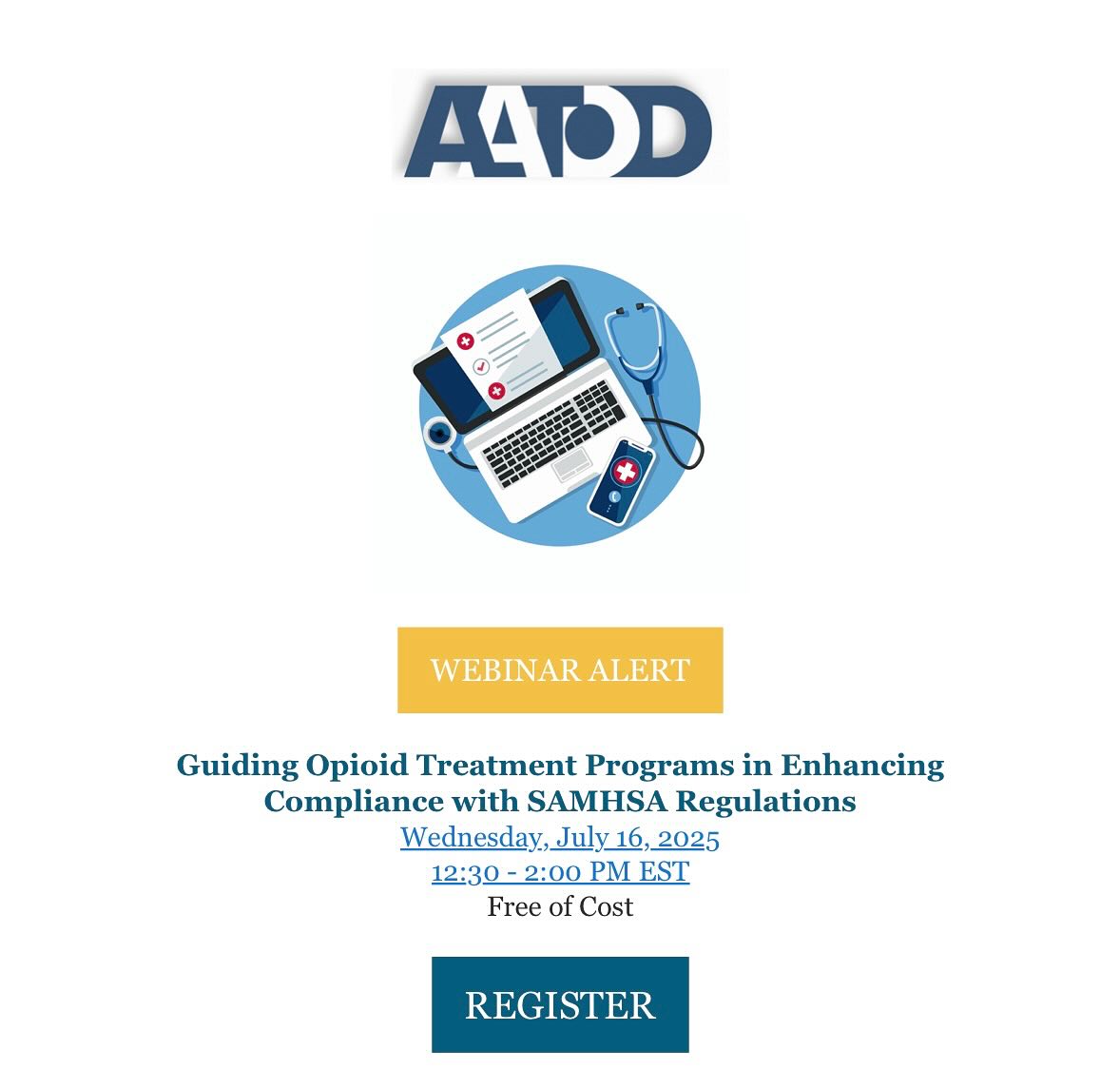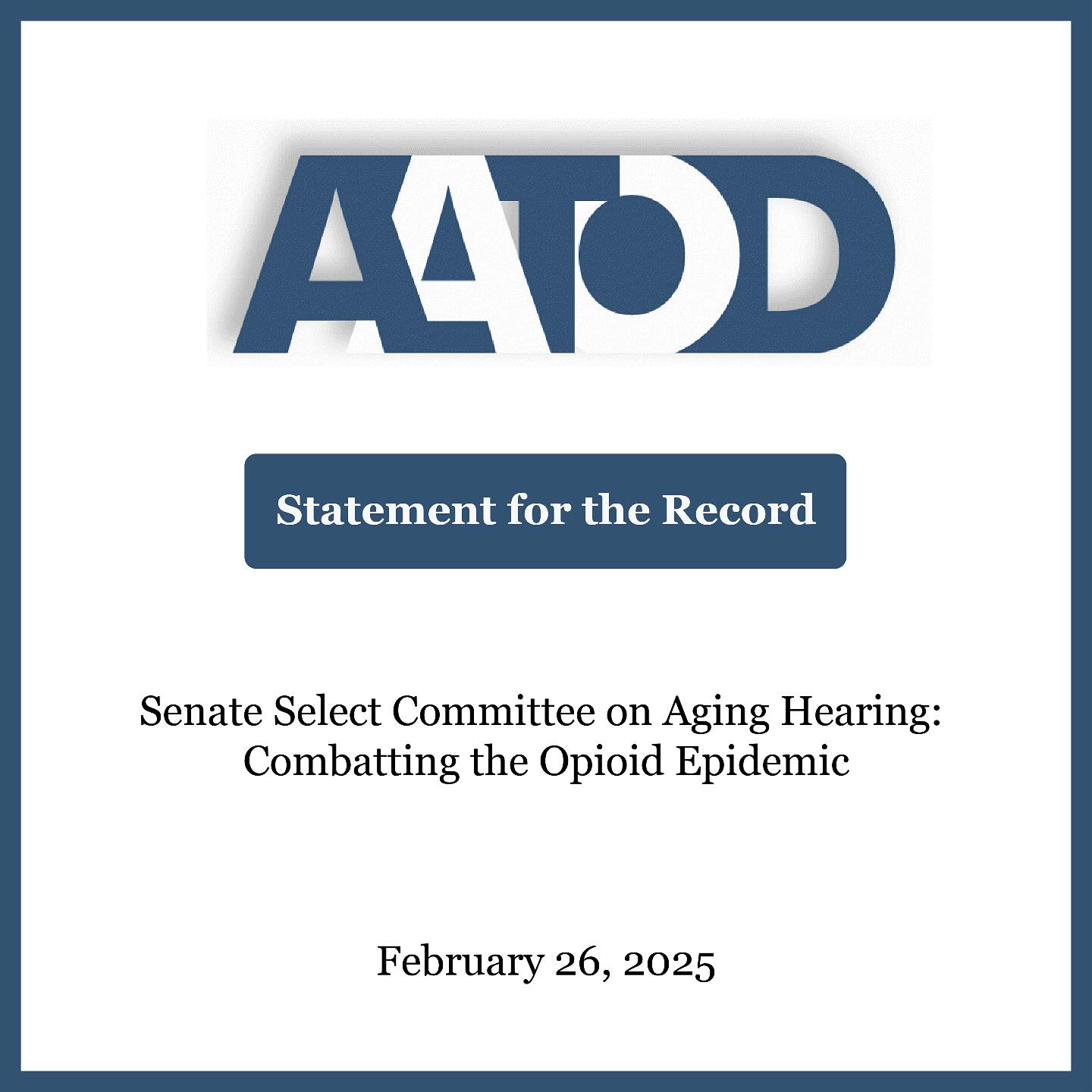Accreditation
Process of periodic review of an OTP for conformance with accrediting-body standards. Accrediting bodies and their standards are approved by SAMHSA.
Addiction
Combination of the physical dependence on behavioral manifestations of the use of, and subjective sense of need and craving for a psychoactive substance, leading to compulsive use of the substance either for its positive efforts or avoid negative effects associated with abstinence from that substance.
Analgesic
A compound that alleviates pain without causing loss of consciousness. Opioid analgesics are a class of compounds that bind to specific receptors in the central nervous system to block the perception of pain or affect the emotional response to pain. Such compounds include opium and its derivatives, as well as a number of synthetic compounds. Chronic administration or abuse of opioid analgesics may lead to addiction.
Benzodiazepines
Group of medications having a common molecular structure and similar pharmacological activity, including anti-anxiety sedative, hypnotic, amnestic, anticonvulsant and muscle-relaxing effects. Benzodiazepines are among the most widely prescribed medications (e..g. diazepam, chlordiazepoxide, clonazepam, alprazolam, lorazepam).
Buprenorphine
Partial opioid agonist approved by FDA for use in detoxification or maintenance treatment of opioid addiction and marketed under the trade names Subutex and Suboxone (the latter also containing naloxone).
Certification
Process by which SAMHSA determines that an OTP is qualified to provide opioid addiction treatment under the Federal opioid treatment standards.
Comprehensive Maintenance Treatment
Continuous therapy with medication in conjunction with a wide range of medical, psychiatric and psychosocial services.
Confidentiality Regulations
Rules established by Federal and State agencies to limit disclosure of information about a patient’s substance abuse disorder and treatment. Programs must notify patients of their rights to confidentiality, provide a written summary of these rights and establish written procedures regulating access to and use of patient records.
Consent to Treatment
Form completed with and signed by an applicant for MAT and by designated treatment program staff members, which verifies that the applicant has been informed of and understands program procedures and his or her rights and treatment goals, risks and performance expectations.
Cultural Competence
Capacity of a service provider or organization to understand and work effectively in accord with the beliefs and practices of persons from a given ethnic/racial/religious/social group or sexual orientation. It includes the holding of knowledge, skills and attitudes that allow the treatment provider and program to understand the full context of a patient’s current and past socioenvironmental situation.
Dependence
State of physical adaptation that is manifested by a drug class-specific withdrawal syndrome that can be produced by abrupt cessation, rapid dose reduction, and/or administration of an antagonist.
Diversion
Sale of other unauthorized distribution of a controlled substance, usually for a purpose other than the prescribed and legitimate treatment of medical or mental disorder
Diversion Control Plan
Documented procedures to reduce the possibility that controlled substances are used for other than their legitimate use. Federal opioid treatment standards [42 CFR, Part 8 12(c)(2)] require a diversion control plan in an OTP as part of its quality assurance program.
Dosage Determination
Process of identifying the amount of medication that will minimize withdrawal symptoms and craving in patients in MAT and eliminate their opioid abuse. Much evidence supports a linear relationship among the amount of medication provided, the timeframe over which it is allowed to act before another dose is administered (dose frequency), and treatment response.
Drug Testing
Examination of an individual to determine the presence or absence of illicit or non-prescribed drugs or alcohol or to confirm maintenance levels of treatment medications, usually by a methodology that has been approved by the OTP medical director based on informed medical judgment. OTP’s also must conform to State laws and regulations in this area.
Hepatitis C
Viral Disease of the liver that is the leading cause of cirrhosis in the United States and a particular concern in the MAT because of the high incidence of the disease and spread of the infection among people which inject drugs.
Induction Stage
The period of opioid pharmacotherapy, usually during the acute phase of treatment, in which steady-state blood levels of a medication are achieved.
Interim Maintenance Treatment
Time-limited pharmacotherapeutic regiment in conjunction with appropriate medical services while a patient awaits transfer to an OTP that provides comprehensive maintenance treatment.
Involuntary Discharge
Formal discontinuation of a patient’s enrollment in an OTP without patient consent, usually for reasons related to program operations, safety or treatment compliance – for example, violence or threats of violence; buying and selling drugs; repeated loitering; flagrant noncompliance with program rules resulting in an observable, negative impact on the program, staff, and other patients; nonpayment of fees; and incarceration or other confinement.
Maintenance Dosage
Amount of medication that is adequate to achieve desired therapeutic effects for 24 hours or more, with allowance for day-day fluctuations.
Opiate Receptors
Areas on cell surfaces in the central nervous system that are activated by opioid molecules to produce the effects associated with opioid use, such as euphoria and analgesia. Opiate receptors are activated or blocked by opioid agonist or antagonist medications, respectively, to mediate the effects of opioids on the body. Mu and kappa opiate receptor groups principally are involved in this activity.
Opioid Addiction
Cluster of cognitive, bahvioral and physiological symptoms resulting from continuation of opioid use despite significant related problems. Opioid addiction is characterized by repeated self-administration that usually results in opioid tolerance, withdrawal symptoms and compulsive drug taking.
Opioid Addiction Treatment
Dispensing of approved medication to prevent withdrawal and craving during the elimination of opioi duse by a patient in MAT, with or without a comprehensive range of medical and rehabiliation services or medication prescribed when necessary to alleviate the adverse medical, psychological or physcial efforts. This term encompasses medically supervised withdrawal, maintenance treatment, comprehensive maintenance treatment, and under restriced timeframes, interim maintenance treatment.
Opioid Agonist
Drug that has an affinity for and stimulates physiologic activity at cell receptors in the central nervous system normally stimulated by opioids. Methadone and LAAM are opioid agonists.
Relapse
Breakdown or setback in a person’s attempt to change or modify a particular behavior; an unfolding process in which the resumption of compulsive substance use is the last event in a series of maladaptive responses to internal or external stressors or stimuli.
Retention in Treatment
Period during which a patient is able and willing to remain in therapy, which is influenced by a combination of patient and program characteristics. Retention in treatment should be considered the product of a continuing therapeutic relationship between recovering patients and their treatment providers.
Stigma
Negative association attached to an activity or condition; a cause of shame or embarrassment. Stigma commonly is associated with opioid addiction and MAT.
Tapering Phase
Phase of MAT in which patients receiving medication maintenance attempt gradually to eliminate their treatment medication (e.g., methadone) while remaining abstinent from illicit substances.
Therapeutic Community
Consciously designed social environment or residential treatment setting in which social and group processes are harnessed with treatment intent. A TC promotes abstinence from substance use and seeks to decrease antisocial behavior and effect a global change in lifestyle, including attitudes and values. A TC views substance abuse as a disorder of the whole person, reflecting problems in conduct, attitudes, moods, values and emotional management. Treatment focuses on drug abstinence, coupled with social and psychological change requiring a multidimensional effort along with intensive mutual help and support.
Therapeutic Dosage
Combination of amount of medication and frequency and timing of administration that is determined by laboratory analysis, professional observation, or patient self-report to be beneficial to control or ameliorate symptoms of withdrawal from addiction and drug-seeking behavior. Therapeutic dosage levels should be determined by what each patient needs to remain stable.
Tolerance
Conditions of needing increased amounts of an opioid to achieve intoxication or a desired effect; condition in whcih continued use of the same amount of a substance has a markedly diminshed effect.
Urine Drug Testing
Most common laboratory assessment technique in addiction treatment, which involves analysis of urine samples from patients for presence or absence of specific drugs. Originally used as a measure of program effectiveness, urine testing now is used to make programmatic decisions, monitor psychoactive substance use, adjust medication dosage and decide whether a patient is responsible enough to receive take-home medication. Methods of urine testing vary widely.
Voluntary Discharge
Departure from and OTP that is initiated by the patient. Tapering from medication is negotiated among the patient, program physician and treatment providers.
Content taken from : A Treatment Improvement Protocol TIP 43
































Leave a Reply
Want to join the discussion?Feel free to contribute!